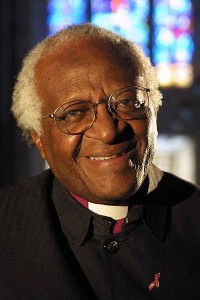Discontentment leads to a Better Way
I am a discontent person. Just ask my wife or co-workers.
Its not that I walk around all day and mope about how life sucks and I got the short end of the stick; far from it. I feel incredibly lucky. I have a great family, a wonderful life and the freedom to do the things I enjoy.
For me, discontentment is not about what we have or our personal lives, but rather it is about the way things could be. I become discontent when I believe there is a better way. I am the kind of guy who can spend an hour trying to figure out the best way to do a 15 minute task. [Side Story: When I kid I was responsible for bringing up the firewood to the house. I tried every conceivable way to make the process easier but usually ended up carrying it up by hand. After a year or two I finally realized the shortest way was not the best way and was able to perfect “The Wheel Barrel Technique” and thus finally suceeded at finding “The Better Way.”]
I tend to look at the world in the same way. Sure there is a lot of good going on — especially in this country, but I refuse to be content because I know things can be better. I am convinced this is because of my understanding of the Christian Narrative. The story of God’s interaction with Creation and Humanity is not about a magic wand where all things are set right (I would even argue the cross is not the final solution). Instead, it a constantly evolving story of redemption where each generation is called to take the torch and continue to partner with YHWH in making the world a better place. The message of Creator-God is constant: I will bless my people so that they can be a blessing to ALL THE NATIONS.
Yes I am discontent. But, that is because I refuse to be content in a world where there is still genocide and human trafficking and corporate exploitation and racism and rape as a weapon of war and….
It would easy to curl up into a ball and enjoy my happy life. To be thankful that my family has healthcare and a warm home. To use my disposable income for personal pleasures and to ignore the plight of so many who do with so little. But I can’t. I can’t because I don’t believe we have yet arrived. I don’t believe where we are as a community, country, society, world is good enough. I am discontent because I believe there is a better way. I believe we have a long way to go and I want to be a part of getting there.
Below I have included a video (I am pretty sure you are going to have to go to youtube to watch it) and the lyrics from one of my favorite songs: Better Way by Ben Harper. He has one stanza that I often repeat to myself whenever I find myself moving from a healthy discontentment into cynicism: What good is a man who won’t take a stand // What good is a cynic with no better plan.
In looking to live out “a better way” I am constantly aware that it is not enough to simply be discontent with the way things are, but we must be active in bringing it about. It is like Gandhi said: “You must be the change you wish to see.”
Better Way – Ben Harper
I’m a living sunset
Lightning in my bones
Push me to the edge
But my will is stone
Fools will be fools
And wise will be wise
But i will look this world
Straight in the eyes
What good is a man
Who won’t take a stand
What good is a cynic
With no better plan
Reality is sharp
It cuts at me like a knife
Everyone i know
Is in the fight of their life
Take your face out of your hands
And clear your eyes
You have a right to your dreams
And don’t be denied
I believe in a better way
